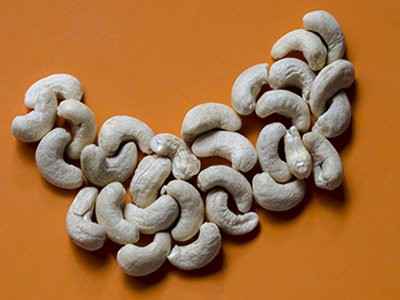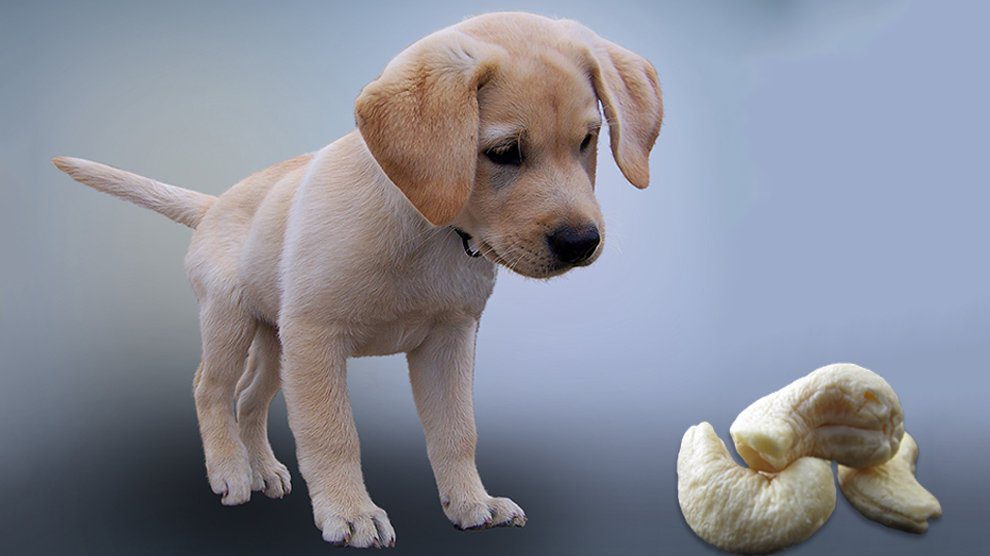Dog Pregnancy Calculator And Timeline
Can Dogs Eat Cashews? Generally, cashews are considered safe for dogs. But it is important to remember certain guidelines.
Risks Of Feeding Dogs With Cashews
- Even though cashews are non-toxic in nature, it can still cause a certain allergic reaction such as hives, itching, swelling.
- Since they contain high levels of protein and a great measure of fat, the chance of your dog getting affected by pancreatitis is quite high; in certain cases, a vet visit may be compulsory.
- Excess salts in cashews can cause symptoms such as seizures, muscle tremors, diarrhea, weakness, and vomiting. Never ignore salt toxicity.
- Frequently giving your dog cashews can lead to obesity-related ailments and health problems such as joint troubles, diabetes, and at times can affect your dog’s lifespan too.
- Macadamia nuts which are sold along with cashew products are toxic and it can cause choking hazards and obstructions in all types of dogs, both small and big.
Can Dogs Really Eat Cashews? – The Answer:
In short, a happy news for all pet owners. Dogs can certainly eat cashews. In other words, the cashews must not be seasoned or salted but they can be roasted. However, they won’t be the ideal snack, but a few pieces of cashew will not harm your dog’s health.
Roasted cashews are the recommended choice and in case of any queries, contact your vet.

Other things to keep in mind
Cashews are very high in protein and high-fat products can cause pancreatitis or an upset stomach, a disastrous life-threatening disorder.
Additionally, fatty products also cause obesity. Constant feeding of cashews can accelerate obesity and other related diseases such as joint troubles and diabetes.
Caution – Never feed your dogs cashews regularly or on a daily basis. Suppose, if you’re pet is hale and healthy and not allergic to cashews, you can use it as an occasional treat.
My Dog Ate Raw Cashews. What Should I Do Now?
As long as your dog has not consumed anything as toxic as macadamia nuts, your dog could suffer from some very bad intestinal and a bad allergic reaction. Under these circumstances, there are two options every dog lover can try.
Option 1
Just observe. Wait and watch because certain allergic reaction may require vet care and it’s the prerogative of all dog owners.
Option 2
How To Induce Vomiting In Dogs At Home Without A Vet’s Supervision?
Since small amounts of cashew nuts can cause intestinal upset depending upon the dog’s age, size, and breed, all dog owners can induce vomiting.
- Give 2 to 3 teaspoons of around 3% hydrogen peroxide and do not give more than 3% of hydrogen peroxide solution.
- Repeat the dose if you find your dog not responding positively.
- Hydrogen peroxide is a stomach irritant that causes immediate vomiting in dogs and 1 teaspoon equals 5ml.
- Moreover, inducing vomiting in dogs is always going to be quite hard but it definitely removes all sorts of intestinal upset associated with cashews.
For those dog owners who opt to choose option 1 or do nothing
For all pet owners who wish to stay silent, take a look at these guidelines.
Suppose, if you find any of these signs, you will definitely need an ER vet for effective care
- Tense belly or bloated belly appearance
- Extreme panting to indicate pain or nausea
- Lack of hunger
- Persistent very poor to poor appetite
- Bloody or bad diarrhea
- Vomiting sensation or persistent vomiting
Health Benefits Of Cashews For Dogs
- Cashews contain omega-6 fatty acids and when they are properly balanced along with omega-3 fatty acids, inflammation in dogs takes very less time to heal.
- In addition, omega-6 fatty acids produce a shiny, soft, and a healthy coat.
- Since cashews contain phosphorous, manganese, magnesium, and calcium, they improve your dog’s bone growth.
- Another major factor in favor of cashews is their antioxidant properties. They are known to reduce the risk of heart disease in dogs.
- Furthermore, cashews contain high levels of fiber which improves your dog’s digestion.
- Some of the other important nutrients present in cashews include flavanols, vitamin K, iron, folic acid, and copper.
Dangers Of Cashews To Dogs
- In fact, dogs getting treatment for pancreatitis should totally stay away from cashews because even a small amount can create severe health complications.
- Due to its high phosphorous content, dogs suffering from urinary problems are recommended to avoid cashews and peanut butter once and for all.
- In hindsight, pet insurance covers both dogs and cats. Also, you can purchase an annual or a monthly plan depending on your requirement.
- Other dangers include pancreatitis, bladder stones, gallstones, artery blockages, calcium deficiency, and even osteoporosis.
The Bottomline
You can feed your dog with very small amounts of cashew in your dog’s diet. Regular cashew intake is not at all suitable for any dog and if your dog consumes cashew by mistake, don’t panic. if the situation worsens, take him to a vet and never lose hope.


















